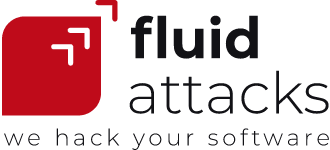Topics
Our blog’s goal is to cover different topics related to security and
other topics of interest in the world of IT. Our articles may also
reflect the author’s opinion about a specific issue related to security.
If you want to collaborate with us or submit an article of your own,
check our ideas list below. When we accept an article covering one of
the ideas on our list, we add it to our blog and update the
#TrendingTopics list. Among the topics of interest are:
Attacks
-
Poodle
TLS. -
Simple cracking of non-reversible keys.
-
Cracking with rainbow tables.
-
Web shells without collateral effects.
-
Reflected file download
-
Apache Struts 2 Framework Checks.
-
Apache Struts Detection.
-
Arbitrary File Upload.
-
ASP.NetMisconfiguration. -
ASP.NETSerialization. -
ASP.NETViewState security (ViewState Check). -
Autocomplete attribute/check.
-
Blind
SQLInjection. -
Browser Cache directive (leaking sensitive information).
-
Browser Cache directive (web application performance).
-
Brute Force (
HTTPAuthentication). -
Brute Force Form based Authentication.
-
Business Logic Abuse.
-
Clients Cross-Domain Policy Files.
-
Collecting Sensitive Personal Information (Personal Sensitive Information).
-
Command Injection.
-
Cookie attributes.
-
Credentials Over Insecure Channel.
-
Credentials stored in clear text in a cookie (Password Exposure).
-
Cross Origin Resources Sharing (
CORS). -
Cross-Site Request Forgery (
CSRF) -
Cross-site scripting (
XSS), (DOM based Reflected viaAJAXRequest). -
Cross-site scripting (
XSS),(DOMbased). -
Cross-site tracing (
XST– Web Method). -
CSPHeaders. -
Custom Directory Module.
-
Custom Parameter Module.
-
Custom Passive Module.
-
Directory Indexing.
-
Email Disclosure.
-
Expression Language Injection.
-
File Inclusion.
-
Forced Browsing.
-
Form Session Strength.
-
FrontPage Checks.
-
Heartbleed Check.
-
HTTPAuthentication over insecure channel. -
HTTPHeaders. -
HTTPQuery Session Check. -
HTTPResponse Splitting. -
HTTPStrict Transport Security (HSTS). -
HTTPVerb Tampering (Request Method Tampering). -
HTTPSDowngrade. -
HTTPSEverywhere. -
Information Disclosure in comments.
-
Information Disclosure in Response.
-
Information Disclosure in scripts (Script Check).
-
Information Leakage In Response.
-
JavaGrinder. -
LDAPInjection. -
Local Storage Usage.
-
NginxNULLcode. -
OSCommanding. -
Out of Band Cross-site scripting (
XSS). -
Out of Band Stored Cross-site scripting (
XSS). -
Parameter Fuzzing
-
Persistent Cross-site scripting (
XSS) (passive –XSSPersistent). -
Persistent Cross-site scripting(
XSS), (active -XSSPersistent Active). -
PHPCode Execution. -
Predictable Resource Location (Resource Finder).
-
Privacy Disclosure.
-
Privilege Escalation.
-
Reflected Cross Site Scripting (
XSS,Reflected). -
Reflected Cross Site Scripting Simple (
XSS,Simple). -
Reflection.
-
Reverse Clickjacking.
-
Reverse Proxy.
-
Secure and non-secure content mix.
-
Sensitive Data Exposure
-
Sensitive data over an insecure channel.
-
Server Configuration
-
Server Side Include (
SSI) Injection. -
Session Fixation.
-
Session Strength.
-
Session Upgrade.
-
Source Code Disclosure.
-
SQLInformation Leakage (SQLErrors). -
SQLInjection. -
SQLinjection Auth Bypass. -
SQLParameter Check. -
SSLStrength. -
Subdomain discovery.
-
Unvalidated Redirect.
-
URLrewriting. -
Web Beacon.
-
Web Service Parameter Fuzzing.
-
X-Content-Type-Options.
-
X-Frame-Options.
-
XMLExternal Entity Attack. -
XPathInjection. -
X-Powered-By.
-
X-XSS-Protection.
Recommendations
-
APIthrottling. -
Recommended hashing function.
-
Recommended asymmetric encryption function.
-
Recommended symmetric encryption function.
-
How to stop effectively a
ddoswithout proxies. -
IAST. -
DAST. -
SAST. -
SecDevOps. -
Why we use monorepo?
-
Why we use trunk based development?
-
Why we use continuous delivery?
-
Why we use infrastructure as code?
-
Why we use
staticgen? -
Why we use
SLB? -
Why we use
AsciiDoc? -
Why
CIsecurity tools don’t break builds? -
Why automated tools have higher escapes rate?
-
Refactoring
JSwith linting. -
Who must detect changes in an
API: provider or consumer? -
Should ethical hacking include vulnerabilities analysis?
Concepts
-
Immutable infrastructure.
-
Red team.
-
Blue team.
-
Purple team.
-
Capture the flag.
-
NixOS -
Linters as normalizers.
-
Poor man linter:
check-all/changedandgrep -P. -
What is
SecDevOps? -
Remediation Pipelines: One shot, Continuous, Breaking the
CI. -
Black Box testing
-
Gray Box testing
-
White Box testing
Standards
-
MisraStandard. -
Bearer authentication.
-
SOAPbasic authentication. -
SOAPdigest authentication. -
Correctness by Construction (
CbyC). -
Security development lifecycle (
SDL). -
Comprehensive software development model.
-
Lightweight application security process (
CLASP). -
Team software process for secure SW/Dev (
TSP-Secure). -
Conceptual security modeling (
CoSMo). -
UMLSec.
Summary
-
Bitcoin blockchainsecurity issues. -
Ethereumsecurity issues. -
Stellarsecurity issues. -
Machine learning for vulnerabilities searching.
-
Incidents associated with vulnerabilities.
Research
DVWAwith false positives.
Marketing
-
Who discards false positives?
-
How to prioritize vulnerabilities remediation?

